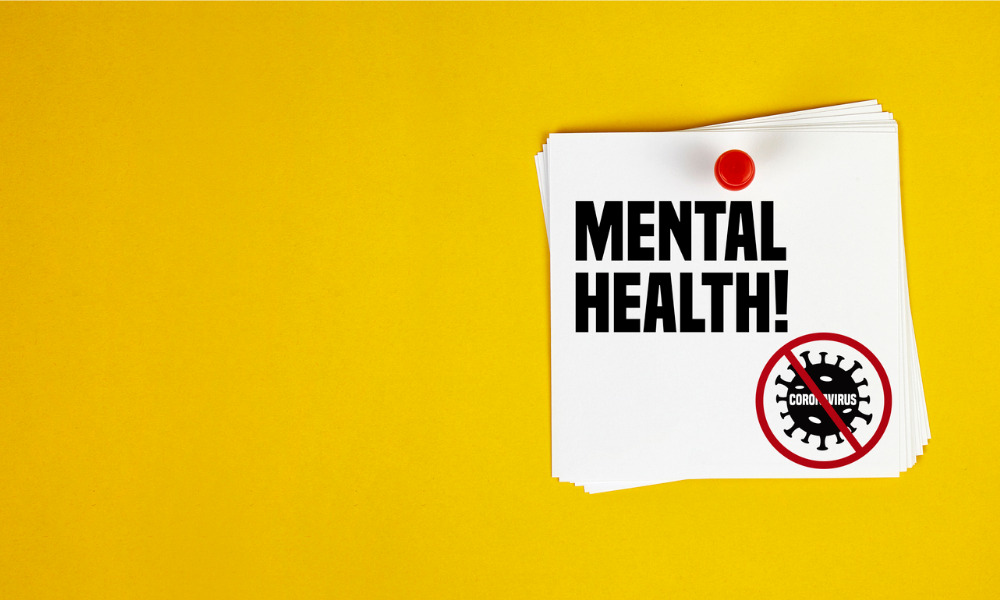The current climate is negatively affecting people’s mental wellbeing

It’s a trying time for people around the globe as we face one of the biggest public health issues in recent years.
Health workers are risking their lives in China and Europe, which have been overwhelmed by the virus. Here in Canada, the virus is rising steadily and surely as efforts are multiplying across all provinces to attempt to keep control of the situation and “flatten the curve”.
HR and OHS specialists have been facing this public health crisis, attempting to keep their companies and workers safe. Concerns have arisen, not just relating to physical health but mental health too.
Reports are multiplying on the negative effect COVID-19 is broadly having on people’s mental health. There are a multitude of reasons as to this: a constant stream of COVID-19 news leaves readers and viewers feeling anxious and overwhelmed; working from home and quarantine increases feeling of isolation and frustration; health care workers putting their lives on the line and are facing PPE shortages. Additionally, multiple retail, service, etc. industry closures are leaving many people unsure about their economic future.
Various resources are being made available to help people get a better grasp on their mental wellness. Canadian digital mental health care provider MindBeacon Group is launching a free online resource, Mental Wellbeing for COVID-19, to help people cope with increased mental health issues due to today’s reality. Additionally, MindBeacon will release its Health Anxiety Treatment Program from March 23. For its clients.
“Together, At Home”
Mental health professionals recommend taking a step back from the constant stream of COVID-19 news, and only checking the news once or twice a day in an effort to be less anxious. An increasing number of individuals, organisations and businesses are launching initiatives in an attempt to bring together people having a tough time self-isolating.
The World Health Organization (WHO) and Global Citizen have launched a series of online concerts entitled “Together, At Home.” WHO additionally recognizes how helpless people can feel during times like these and has launched a Solidarity Response Fund to get donations for those affected by COVID-19.
Lastly, on a different, more hopeful note, the pandemic has shone a spotlight on daily acts of human kindness and community initiatives.
In hard times, it’s important to think of others, especially health care workers who are tirelessly working round the clock to beat the virus. Videos of quarantined people in Italy, France, Spain or the Netherlands applauding health workers from their balconies have made the rounds on the web, and hopefully remind us every day that we’re all in this together.
On March 19, the Registered Nurses’ Association of Ontario announced that it will be launching a similar initiative to support health providers, social service and other essential front-line workers in Ontario, Canada and around the world who are tackling the virus.
Take care of your mental health. If you need help immediately, contact Canada Suicide Prevention Service (CSPS) by Crisis Services Canada, which enables callers anywhere in Canada to access crisis support by phone, in French or English: toll-free 1-833-456-4566 Available 24/7 (other services can be found here).





